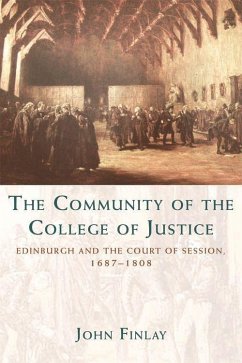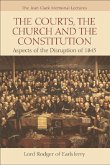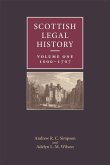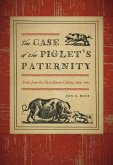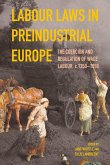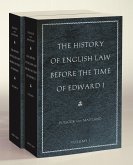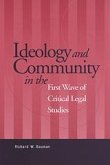'Recommended as an essential read for students and researchers interested in both Scottish legal or social history' Shona Wilson Stark, Cambridge Law Journal 'Quite apart from providing the most thorough account available of the legal profession in the eighteenth century, The Community of the College of Justice also provides firm foundations for further study of the development of the law itself' J.D. Ford, Journal of Legal History This is the first institutional history of Scotland's 18th century civil court - The College of Justice - and its legal community. How important can a court and its members be in influencing the development of a country? In Scotland's case, the answer is surprising. The remarkable metamorphosis of eighteenth-century Edinburgh, from crisis conditions in the 1690s through the Union to the intellectual heights of Enlightenment and the development of the spectacular New Town, owed a great deal to those who spent their professional lives working in the Court of Session as members of the unique institution known as the College of Justice. James Boswell, Lord Kames, Henry Dundas and Walter Scott are just some of those who emerged from the College to influence Scotland's place in Europe. This study investigates the important role of College members in the cultural and economic flowering of Scotland as a whole, and Edinburgh in particular, and argues that a single Law institution had a marked influence on the Scottish cultural landscape to the present day. As a hub of Scots Law, the Court of Session records uncovered by John Finlay show a cross-section of Scottish society experiencing Edinburgh's legal processes in the 18th century. This will be of interest to anyone studying the sources and singularity of Scots Law as well as the social history of the 18th century. John Finlay FRHS, author of Men of Law in Pre-Reformation Scotland (2000) and many articles on the history of lawyers in Scotland, is Professor of Scots Law at the University of Glasgow.
Bitte wählen Sie Ihr Anliegen aus.
Rechnungen
Retourenschein anfordern
Bestellstatus
Storno

